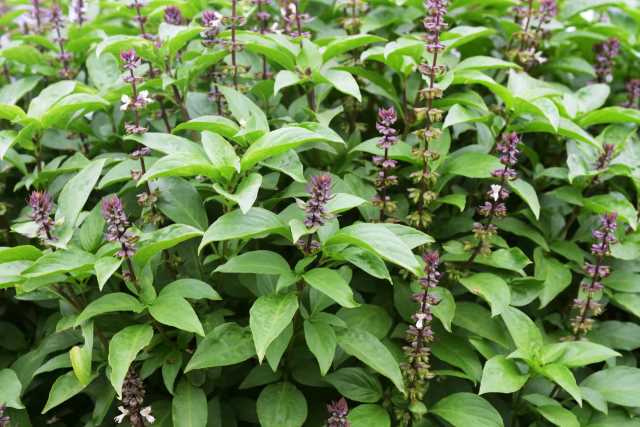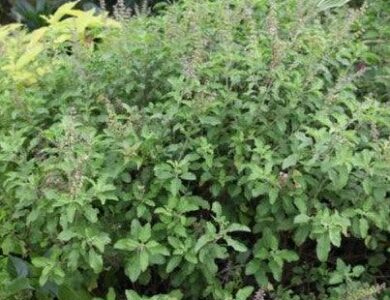Tulsi Plant Types: A Guide to Tulsi Varieties: Exploring the Diverse World of Holy Basil

The holy Tulsi, also known as Holy Basil, isn’t just one singular plant! It boasts several varieties, each with its own unique characteristics and potential benefits. Here’s a glimpse into the vibrant world of Tulsi types:
1. Rama Tulsi (Ocimum tenuiflorum):
- The most common variety, known for its bright green leaves and sweet, clove-like scent.
- Considered sacred in many Hindu households.
- Believed to possess various medicinal properties like boosting immunity and reducing stress.
2. Krishna Tulsi (Ocimum gratissimum):
- Features darker, purplish green leaves and a peppery aroma.
- Commonly used in Ayurveda for its antioxidant and anti-inflammatory properties.
- Believed to help manage respiratory issues and skin problems.
3. Vana Tulsi (Ocimum gratissimum):
- Also known as Wild Tulsi, found growing in forests and wastelands.
- Has strong, camphoraceous scent and smaller leaves compared to other types.
- Believed to possess antibacterial and antiviral properties.
- Traditionally used to fight coughs, colds, and fever.
4. Kapoor Tulsi (Ocimum canum):
- Distinct for its strong camphor fragrance and whitish-green leaves.
- Used in religious ceremonies and traditional medicine.
- Considered to have antiseptic and analgesic properties.
- May help manage pain and inflammation.
5. Lemon Tulsi (Ocimum citriodorum):
- Characterized by its citrusy, lemony aroma and light green leaves.
- Used as a culinary herb and for its potential digestive benefits.
- Rich in vitamin C and antioxidants.
- May aid in reducing stress and anxiety.
Beyond these five, there are several other less common Tulsi varieties, each with its own unique attributes and uses.
Remember: While each Tulsi type offers distinct benefits, it’s crucial to consult an Ayurvedic practitioner or qualified healthcare professional before incorporating any type into your diet or using it for medicinal purposes.
Follow Us




